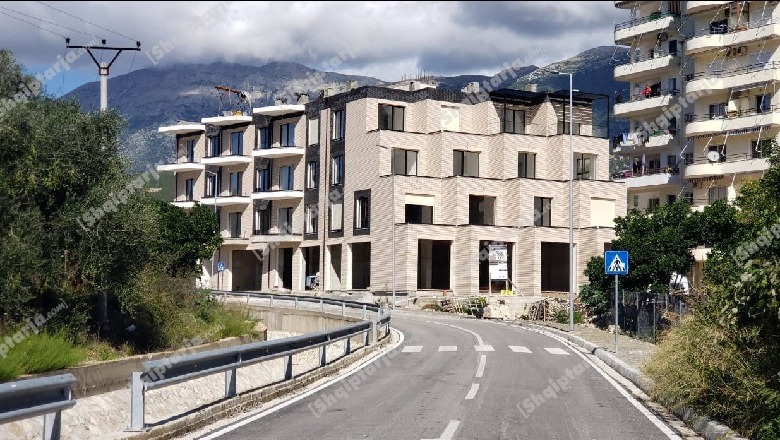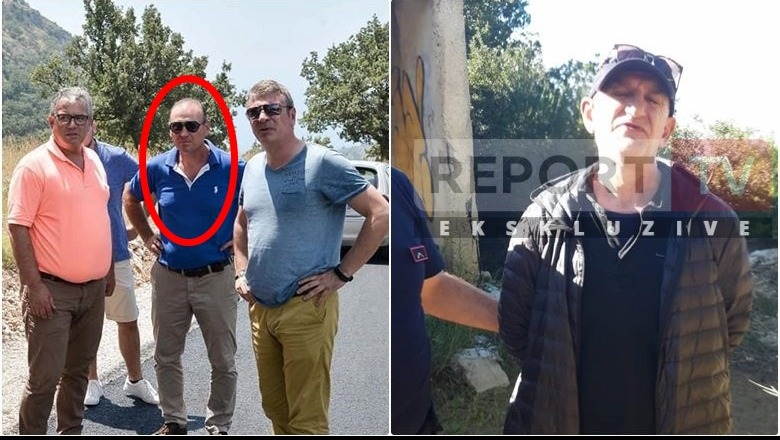Folgen einer hoch kriminellen Deutschen und EU Politik, welche die Landeszerstörung finanzierten und Projekte, immer unter Kontrolle von Kriminellen als Kultur Status bezahlten und seit Ende 1998, auch die Weltbank, Ohne jede Kontrolle, nur mit eigen betriebenen gefakten Ok Reporting, wie toll Alles ist, und welche entscheidenden Fortschritte gemacht wurden. Knut Fleckenstein, Hamburg, war wie andere SPD Gestalten auch aus Hamburg, eine Art korrupter Vorzeige Club, für Verbrecher in Albanien, im Modell und System des Frank Walter Steinmeier, wobei Angela Merkel auch noch die Kopfabschneider Terroristen in Syrien finanzierte mit Milliarden.
Wahrscheinlich, konnte Niko Goro, nicht den illegal gebauten Bau registrieren lassen, somit auch keine Appartment verkaufen.

bei der Fiere Mafia: Susanne Schütz mit den Tirana Gangstern
Der Sohn, des Onkels des Bürgermeister von Himari wurde hingerichtet, weil er Minister Protektion hatte, der Edi Rama Mafia, hier mit Gjinuri, Land dort erwarb, um Wohnungen zubauen, aber der Land Verleiher erhielt Nichts.

Niko Goro, Gjinuri
Ekzekutohet biznesmeni i ndërtimit në Himarë, djali i xhaxhait të kryebashkiakut Jorgo Goro! Kapet autori nga Tirana: I kam dhënë tokën, s‘ më dha lekët! Ky është kompleksi që u bë ‚mollë sherri‘

Ekzekutohet biznesmeni i ndërtimit, Niko Goro, 51 vjeç, djali i xhaxhait të kryebashkiakut, Jorgo Goro në shëtitoren e qytetit. Mes Niko Goros dhe autorit Kliti Leka kishte një marëveshje për ndërtimin e një pallati. Leka vuri në dispozicion tokën për të marrë apartamente. Gjatë momentit të vrasjes u filmua nga kamerat, ka vepruar i vetëm.
- Me pranga në duar/ Ky është autori që vrau biznesmenin
- Ekzekutoi me kallashnikov biznesmenin në Himarë, 53-vjeçari i ‚furnizuar‘ me armë! I gjendet dhe një pistoletë (FOTO)
Monday, October 5, 2020
Die Paten des „Pablo Escobar des Balkans“: Klement Balili, der mit Schnellbooten eigene neue Drogen Routen in ganz Griechenland, zu Inseln organisierte mit anderen Verbrecher Clans inklusive Mykonos. HIer in Albanischen Medien in 2017
einige Ausschnitte jüngst von Foreign Policy: „Mr. Rama’s recruitment of inexperienced apprentices and corrupt loyalists„—„Mr. Edi Rama’s government is incompetent and a prey to a significant influence of Islamic State; it must be emphasized that Albanian National Intelligence Service has been infiltrated by Islamic State agents and its well trained officers“–—–„Mr. Rama’s Government members who constantly pressure foreign investors for huge bribes and expensive vacations abroad.„—-„ came to power thanks to his deep connections with criminal factions„-– drug barons, money laundering

Arben Ahmeti – Susanne Schütz – Sokol Dervishi
Verbrecher Club des Betruges in Albanien-
Vlore Betrugs Geschäfte, wobei auch diese Mafia Minister schon gefeuert wurden
GTZ in Himari, man lässt sich feieren, mit Rund um Service, weil man eine Promenade finanziert hat. Andere Projekte, sind immer nur ein Desaster

https://balkanblog2.rssing.com/chan-10202061/all_p40.html
Albania removes clause for arbitrary confiscation of its Greek residents

The Albanian factor and its influence in the Balkans
SManalysis


